So, you’ve just brought home a tiny, adorable puppy… or maybe you’re dreaming of the day you will? 🥰
Get ready for an adventure filled with playful nips, wagging tails, and unconditional love! ❤️
But bringing a puppy into your life is a big decision, and just like human babies, these little furballs need a lot of care and attention.
Don’t worry, though!
This article reviews a puppy care guide from the AnimalWised YouTube channel.
The video can be viewed at the bottom of this article.
We will walk you through everything you need to know to give your new best friend the best possible start in life.
Let’s dive in and make sure your puppy thrives! 🎉
The Important First Vet Visit 🩺
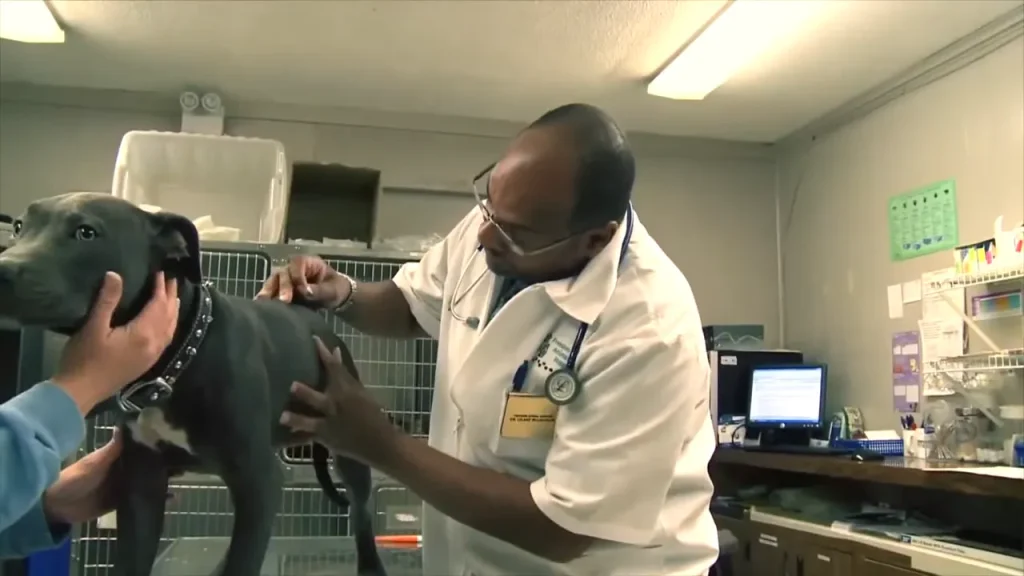
One of the very first things you absolutely must do after welcoming your puppy into your home is schedule a visit with your veterinarian.
While most adoption centers will give you some information about your puppy’s health history and may have even started their vaccinations, it’s always a fantastic idea to get a professional opinion right away.
Think of it as a “welcome to the world” checkup!
Your vet will perform a thorough physical examination to make sure your puppy is healthy overall.
They can also check for any pesky parasites, like fleas or worms, and get them started on the right preventative treatments.
Plus, they’ll administer any necessary vaccinations to protect your pup from common diseases.
This visit is also a great opportunity to ask your vet for recommendations on the best food for your puppy, as well as general care tips tailored to their specific breed and needs.
Tackling Pesky Parasites: Deworming 🪱
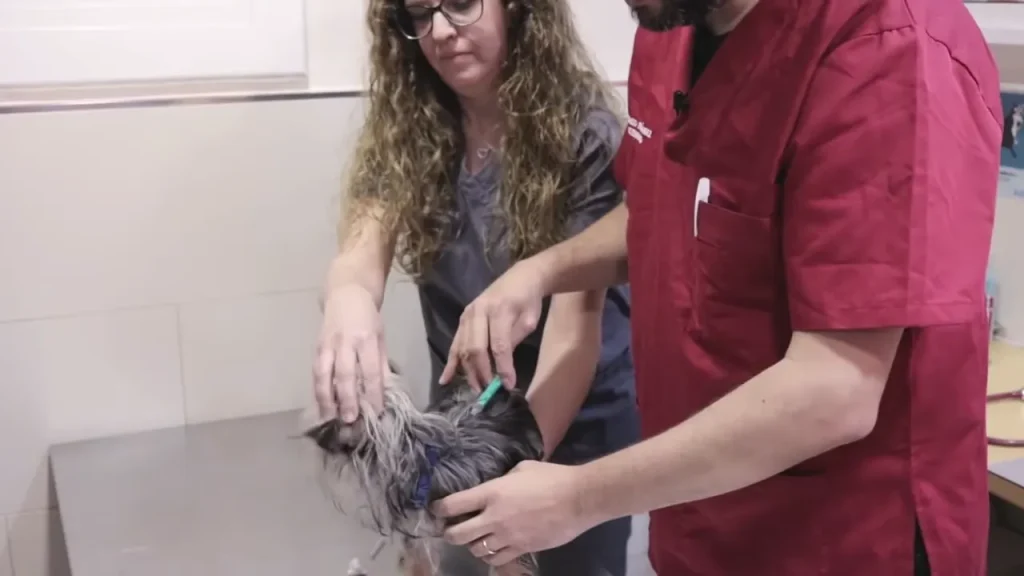
Speaking of those little critters… internal and external deworming are crucial aspects of basic puppy care.
You might not always see them, but dogs can easily become infected with parasites like fleas or intestinal worms.
While a small number of these unwelcome guests might not cause immediate obvious problems, they can lead to some serious health complications for your little one, such as anemia.
And here’s something important to remember: these parasites can sometimes even be transmitted to other animals and… yes, even to us humans! 😱
That’s why it’s so important to start deworming your puppy right from the beginning.
Generally, internal deworming can begin as early as day 15 of a puppy’s life.
For external parasites like fleas, it’s usually recommended to start treatment after your puppy is around eight weeks old.
Your veterinarian will be your best guide here, suggesting the most suitable and effective products specifically for your puppy.
They’ll also likely recommend a schedule for ongoing deworming treatments, often monthly, to keep those parasites at bay.
Building Immunity: The Vaccination Schedule 💉
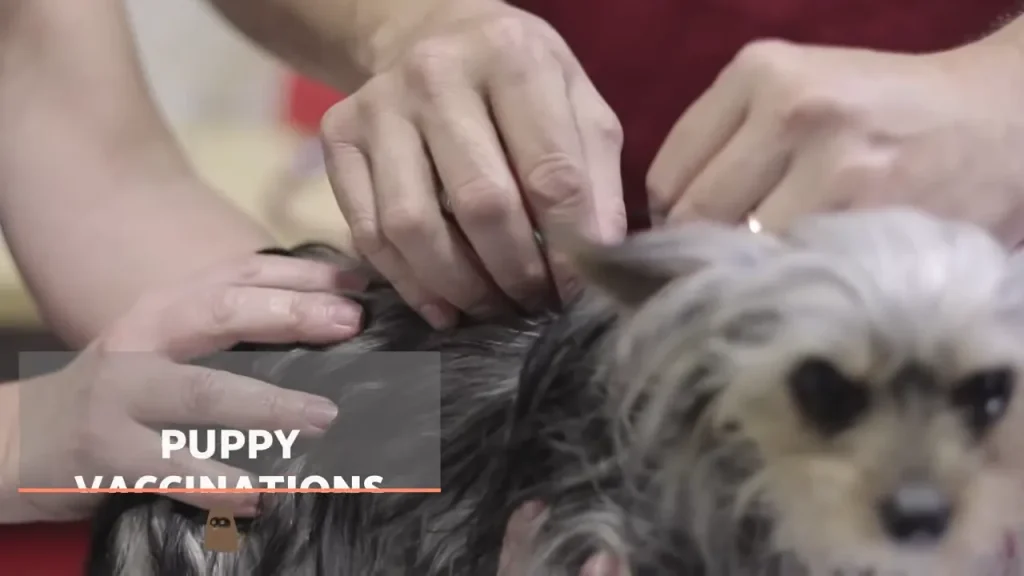
Just like human babies need their shots, puppies need vaccinations to protect them from potentially life-threatening diseases.
The typical vaccination schedule for puppies usually begins when they are around eight weeks old.
These initial vaccines are given in a series of doses over a period of time to build strong immunity.
This vaccination schedule is then typically repeated annually throughout your dog’s life to maintain that protection.
While the specific mandatory vaccinations can vary slightly depending on where you live, vaccinating against rabies is generally highly recommended during those first few weeks of your puppy’s life.
It’s really important to stick to the vaccination schedule recommended by your vet.
You might be tempted to take your new puppy out to explore the world right away, but it’s best to avoid taking them out for walks or to public places where they might encounter other dogs until they have completed their initial vaccination series.
This is because their immune system is still developing, and they are more susceptible to picking up serious infections.
Ensuring Identification: The Microchip 📍
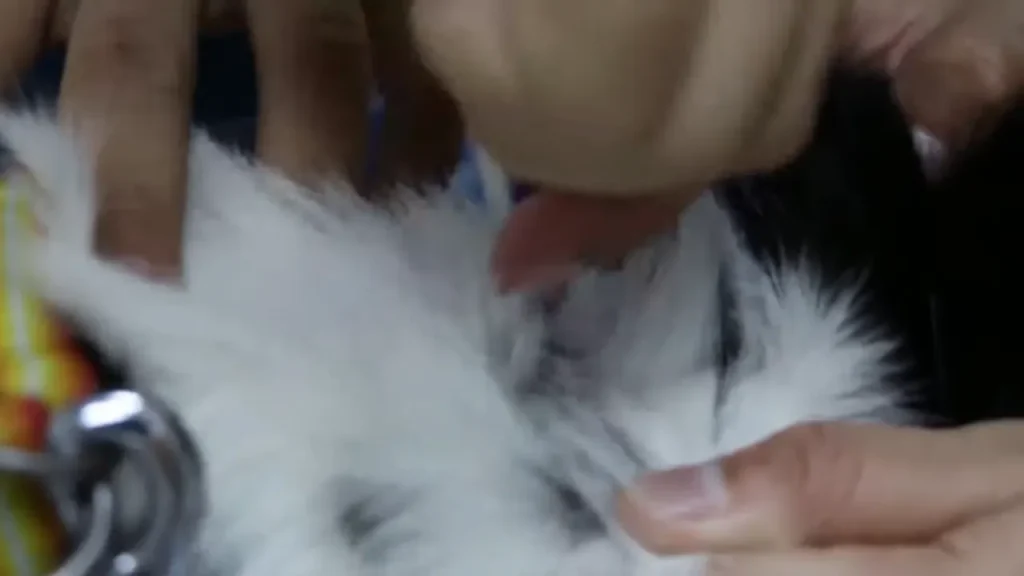
Here’s a little piece of technology that can make a big difference: microchipping!
In many countries, it’s actually a legal requirement to have your dog microchipped.
This involves a tiny device, about the size of a grain of rice, being implanted just under your dog’s skin via a simple injection.
This microchip contains a unique identification number that can be scanned by animal shelters and veterinary clinics, making it much easier to reunite you with your furry friend if they ever get lost.
Think of it as a permanent ID tag that can’t fall off!
Even if your puppy always wears a collar with identification tags, a microchip provides an extra layer of security and peace of mind.
It’s a quick and relatively painless procedure that can save you a lot of heartache down the road.
Laying the Foundation: Basic Training 🐾
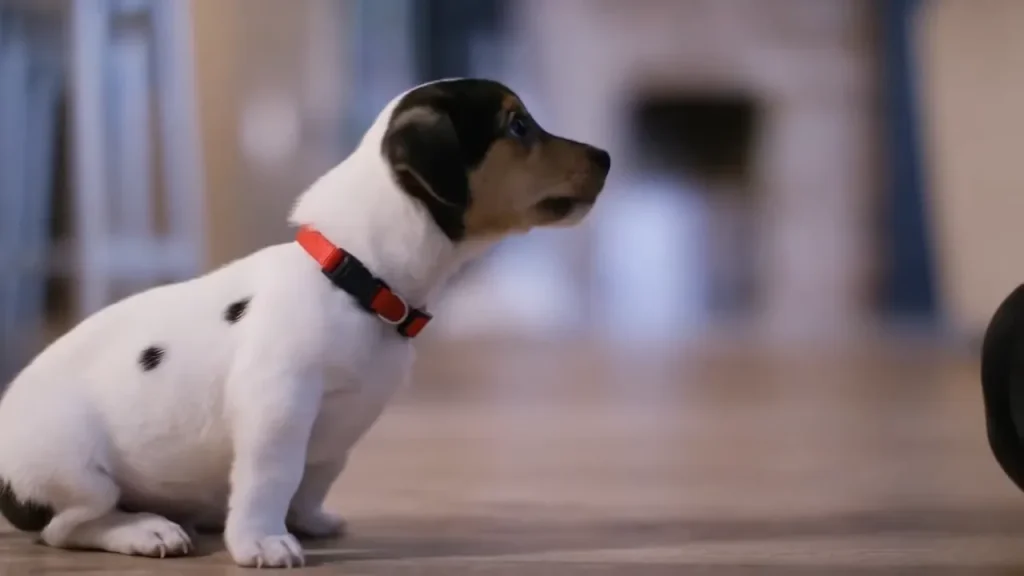
Now, let’s talk about training!
Basic training is an absolutely essential part of caring for your puppy.
This isn’t just about teaching them cute tricks (though those are fun too!).
It’s about helping them become well-adjusted, confident, and happy members of your family and society.
This includes crucial things like potty training, teaching them basic commands like “sit,” and helping them learn how to interact appropriately with other animals and people.
You’ll also want to work on things like preventing them from jumping on guests and teaching them not to pull on their leash during walks.
Dog training classes can be incredibly beneficial, providing you with guidance from experienced professionals and giving your puppy valuable socialization opportunities.
Remember, training should always be based on positive reinforcement methods.
This means rewarding your puppy for good behavior with treats, praise, and affection, which helps them understand what you want them to do and motivates them to keep learning.
Training isn’t just about obedience; it’s also a fantastic way to bond with your puppy and provide them with essential mental and physical stimulation.
Burning Off Energy: Exercise and Playtime 🏃♀️🎾
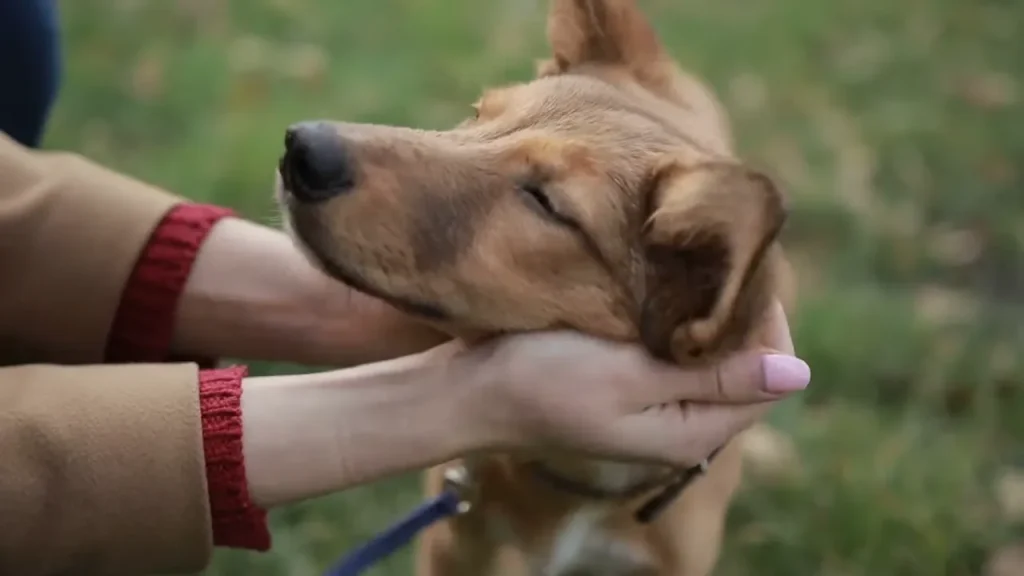
Puppies are bundles of energy!
They need plenty of opportunities to run, jump, and play to stay happy and healthy.
Exercise is a vital aspect of puppy care, helping them to channel all that accumulated energy in a positive way.
Make sure to dedicate several hours of the day to playtime, both indoors and outdoors.
Let your puppy explore and run around, but it’s also important not to overdo it, especially when they are very young, as excessive exercise can potentially lead to joint problems down the line.
Remember, they are still growing!
As a general guideline, two daily walks of around 20 to 40 minutes each are often recommended.
These walks can include a mix of more relaxed strolling and more active moments of play.
Providing your puppy with plenty of appropriate toys to chew on and interact with is also crucial for both their physical and mental well-being.
Showering Them with Love: Attention and Socialization ❤️
Find out more: https://www.youtube.com/@AnimalWised
Last but certainly not least, a puppy needs a whole lot of love and attention!
This is something that many people sometimes underestimate when they’re thinking about getting a dog.
A puppy that is frequently left alone for long periods is likely to develop behavioral problems.
These issues can range from excessive barking and chewing to more serious problems that can become harder to manage as they get older.
Before you bring a puppy home, it’s really important to honestly assess how much time you can realistically dedicate to their care.
Consider your daily routine, your work schedule, and your social commitments.
If you give your new puppy all the love, attention, and positive reinforcement they need, and you take care of them properly, you will be rewarded with a loyal and loving companion for many wonderful years to come! 🥰
- Secret to a Show-Stopping Maltese? Unleash Your Inner Groomer! – March 26, 2025
- 10 Hilarious Dog Memes You Need to See – March 24, 2025
- A New Leash on Life: Rocky the Gentle Giant Finds His Forever Home – March 23, 2025

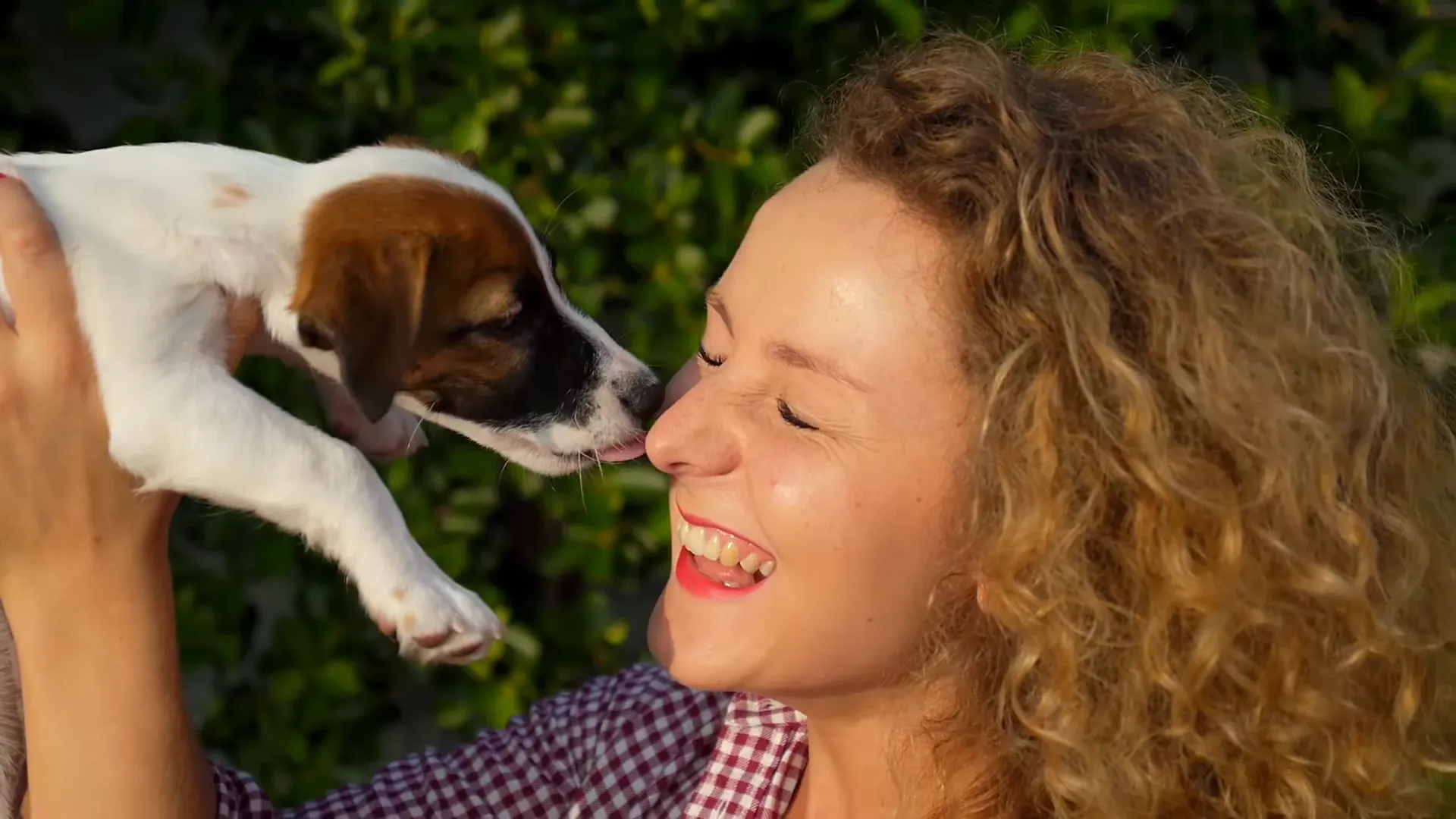
13 responses to “Welcoming a Furry Bundle of Joy? Your Complete Guide to Puppy Care!”
buy enclomiphene buy online uk
commander enclomiphene generic
comprar kamagra en usa
generique kamagra ligne a bon franche comte
how to order androxal no prescription needed
purchase androxal generic androxals
dutasteride cod
dutasteride price comparison
ordering flexeril cyclobenzaprine canada on sale
how to order flexeril cyclobenzaprine price prescription
ordering gabapentin generic is good
buy gabapentin cod delivery
buying fildena cheap canada
ordering fildena purchase online uk
purchase staxyn generic canadian
buy staxyn no prescription
is itraconazole a prescription drug
buy cheap itraconazole generic when available
buy avodart australia where to buy
get avodart generic online usa
cheap rifaximin usa mastercard
purchase rifaximin lowest price viagra
xifaxan no prescription overnight cod delivery
cheapest buy xifaxan us pharmacies
kamagra dodání není vyžadován žádný předpis
nejlevnější cena za kamagra